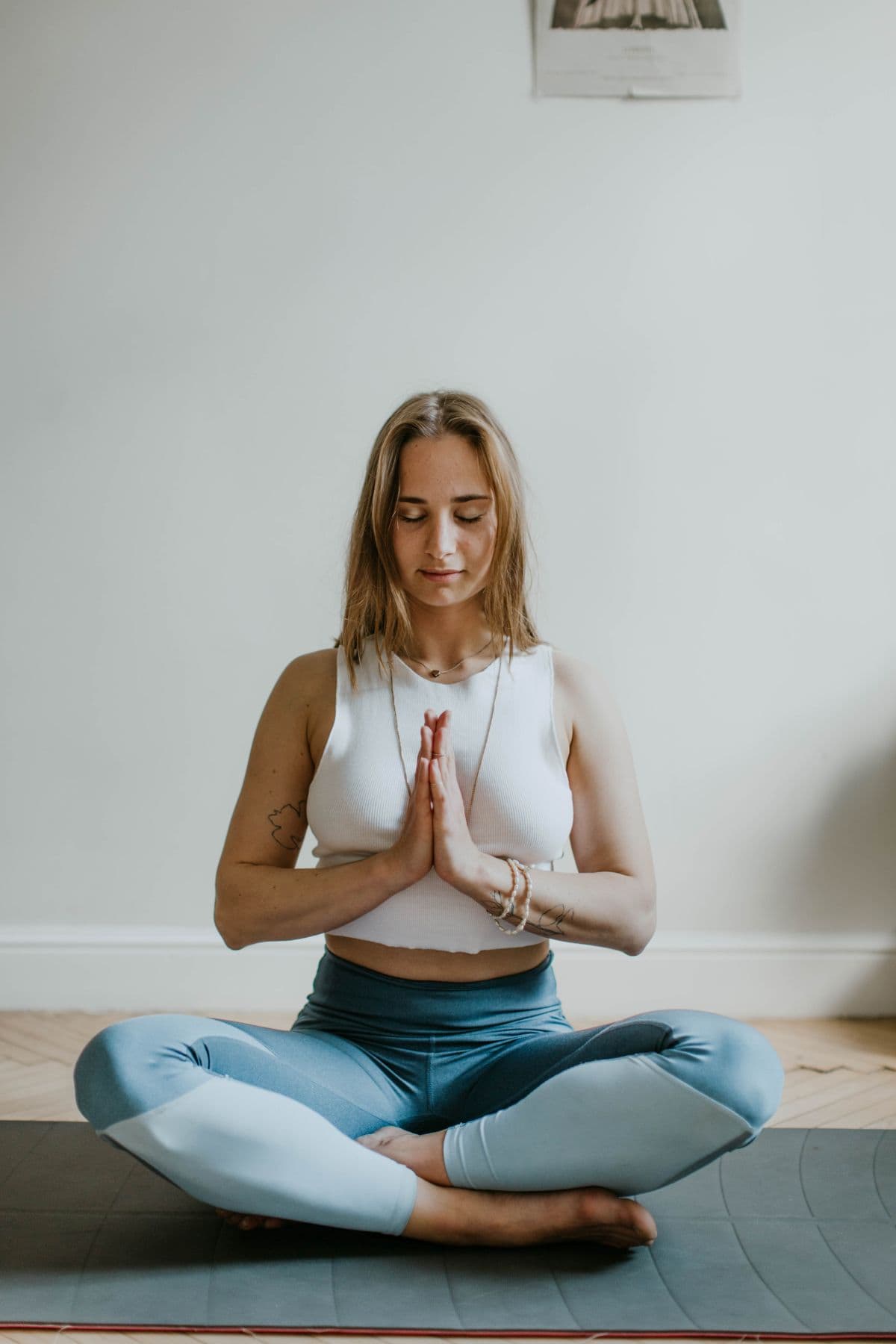One thing about cultivating a stress-free lifestyle is setting up a routine. Sure, it’s generic, like, this advice gets tossed around a lot, but having a routine in your life does help. But at the same time, you’ve done the whole routine.
Maybe you’ve dimmed the lights, lit a candle that smells like it belongs in a fancy spa, and even poured yourself a cup of herbal tea. But somehow, you’re still staring at the ceiling two hours later with your brain running a marathon.

So, does any of this sound familiar at all? Well, the problem isn’t that you aren’t trying. It’s that your wind-down routine might be missing the actual “winding down” part. Well, it’s not like the modern world doesn’t exactly hand out peace and quiet for free.
There’s things like notifications, background stress, and yeah, well, the mental load doesn’t clock out when your workday ends. So it makes sense that simply lighting a lavender candle won’t always cut it.
The Stress is too Persistent
The thing about stress is that it can hang around long after the stressful moment has passed. You might not even notice it’s still there. Like that tension in your jaw, the tightness in your shoulders, or the restless feeling that makes it impossible to sit still?
That’s stress playing the long game. Even when you’re physically still, your nervous system might still be wired. So, that’s why calming down isn’t always about doing less; rather, it’s about giving your mind and body the right conditions to let go.

The Natural Remedies aren’t Always Enough
Sure, a hot drink can feel comforting, but how helpful is it? Some drinks just don’t do anything. For example, hot cocoa is really nice, but at the same time, it’s only good for the soul, but not physically or mentally doing you any favors. So it might help to just experiment just a little, for example,
you could look into chamomile tea (which some swear up and down by), or even try something a little more unique like Herbal Oasis THC infused drinks to get your mind winding down. But yeah, sometimes, those more common natural remedies might not be enough, so it can help to look into other options. Besides, the goal is to get your mind and body off that fight-or-flight mode into actual rest-and-digest territory.

You Can’t Rely on Screens to Decompress
Sure, scrolling through social media might feel like a break, but it often adds to mental stimulation instead of subtracting from it. Just think about it; bright screens, doomscrolling, or just plain overexposure to information can trick the brain into thinking it’s still time to stay alert.
Besides, that doesn’t pair well with any wind-down effort. Instead, it’s best to look into replacing screen time with something tactile and low-stimulus, for a lot of people, it’s going to be things like journaling, stretching, or even aimlessly flipping through a physical book, and yeah, all of this gives your mind a clearer signal that it’s safe to slow down.

Movement Helps Even When You're Tired
Sure, it’s true, this might feel counterintuitive, but doing gentle movement in the evening can make it easier to relax. No, really, just think about it for a moment; stretching out tight muscles, walking around the block, or doing slow bodyweight exercises helps burn off excess nervous energy.
When the body feels like it's moved and settled, it becomes easier for the brain to follow suit. This doesn’t mean a full-on workout right before bed, actually, that’s a bad idea; it’s just more about having some light movement.

Sometimes it's About Processing
Believe it or not, but not every restless night is about poor sleep habits. Sometimes it’s unresolved thoughts from the day. Okay, maybe this was already something you knew, but think about the times when you struggled to sleep. Maybe it was due to conversations that didn’t sit right, some worries about tomorrow, or just an undercurrent of anxiety that your brain hasn’t found the words for yet.
But you absolutely need that mental release, and usually journaling or writing voice memories can actually help. But you basically need to “let out that steam” if you can.

Maybe it’s from Overstimulation
It goes back to earlier about being around screens, but your brain is constantly processing more than it's designed to handle. This overload builds up, and by the time evening rolls around, it's not that your brain can’t relax; it just doesn’t remember how.
But you need to reset this overstimulation, like having warm lights to help create a sensory shift. But again, yeah, cutting out the screens for the rest of the day helps too. You want your nervous system to essentially feel safe.

You Need to Chase Consistency
So creating a routine is important because, well, this needs to be incorporated daily. But at the same time, the point of a wind-down routine isn’t to fix your life in 30 minutes. It’s to send a consistent signal that helps you transition from the demands of the day to a more restful state.
It doesn’t need to be elaborate, expensive, or aesthetic enough for social media (honestly, you need to ignore those aesthetic ones you see on TikTok because they’re not even real). But you do need to train your nervous system, because a reliable pattern will help your body relax, because it knows there’s a rhythm.

You're Allowed to Experiment
Some people swear by herbal teas, while others find baths too much effort. Some need absolute silence; others fall asleep to gentle music or white noise. But there’s no one-size-fits-all solution. What works for one person might not work for you, so just finding what works is a bit of trial and error.
Sure, no one really likes trial and error, but you’re definitely better off considering it because it can help you find what works, so there’ll be that consistency that you need in the long term.

Your Brain Needs Downtime Before Bedtime
The biggest mistake people make is waiting until they’re already in bed to start relaxing. If your brain has been running full speed all day, it needs time to downshift. So, the earlier you start easing out of productivity mode, the better. Now, that doesn’t mean sitting in silence for three hours. It just means having a buffer between “doing all the things” and “trying to sleep.”





Leave a Reply